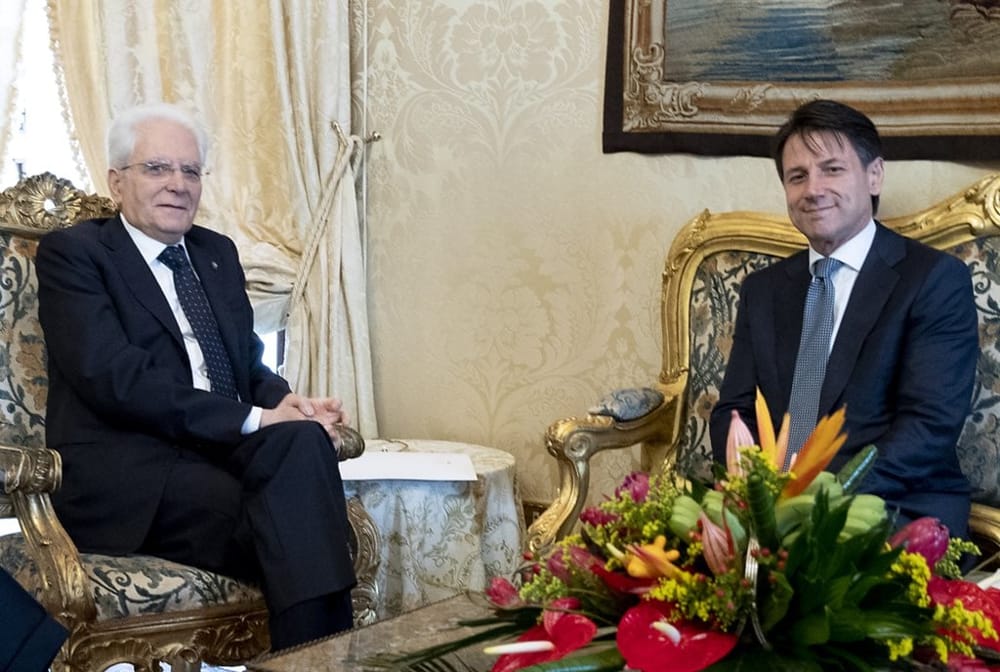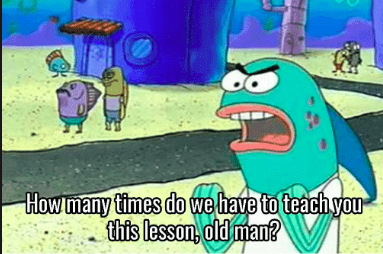It’s time for a third way
Italian crisis exposes all the dust we hid under the carpet

I will start by saying that I have a bias in this discourse, since I am Italian and my feelings are a mix of anger, disenchantment and gloom at both my own country and Brussels.
Having said that, the spotlights of the whole continent are pointed on Rome for a reason: that reason being that the country is in a political and economic turmoil and the major target is the European Union, with the Eurozone at its centre. Since the President rejected the proposal of the economic minister of the Five Star/ League alliance on the base of the “uncertainty” of the markets and on the proposed minister positions on the euro, all hell broke loose. It all started last Sunday night and for the whole week the country was wrapped around an institutional crisis that radicalized the debate on one key aspect: is the economy more important than the people’s will?
This question has many different aspects and the most immediate one is to what extent is a member state allowed to criticize the Eurozone current policies and, brought to the extreme, whether or not it can even prospect the idea of leaving the single currency. As many analysts already pointed out, Italians went from one of the most supportive of both the EU and the Euro, to be one of the most Eurosceptic. This change relates to many factors, from the poor management of the immigration crisis to the sluggish growth and rising inequality and the persisting high unemployment. To be sure, the country is in dire need of reforms and no political side is denying that, nevertheless in the last decade the population felt that on top of Italy’s endemic problems, the EU has acted as a burden and an enhancer of the country’s issues. When the “technocrat” Mario Monti was elected Prime Minister in 2011, he implemented a series of so-called “tears and blood” economic policies that were meant to re-adjust the state’s finances and the governments after him have rather maintained the status quo of the post-crisis situation. Yet, seven years after those sacrifices, the economy is just barely growing and the vote in March has reflected this unhappiness.
After the refusal of the President on the proposed economic minister Paolo Savona, the two parties supporting it withdraw and called for new elections, emboldened by the uncommon behaviour from the President Sergio Mattarella (it was the first time a President refused a minister based on political motives) and by the polls that give The League a much bigger margin compared to the already good result of March. In the meanwhile from the rest of Europe many voices were raised in defence of the president choice and of the Euro, yet infallibly, they all backfired (much like the President decision itself) and have had the exact opposite effect, stoking the populist fire. The worst offender was Günther Oettinger, German commissioner for the budget, who said something in an interview that was promptly reported as “Commissioner Oettinger says the market will teach Italian voter not to vote for populists”. This, coupled with German Chancellor Angela Merkel comparing the situation to the Greek crisis and other smaller instances, seemed to confirm the worst fears of the people, that is the fact that their vote, their sovereignty was irrelevant in the face of external forces, be them the elusive “markets” or German influence in the EU.
Now, on Thursday night, we finally got the official news: Giuseppe Conte will be the next Prime Minister and the infamous Savona will be Minister of European affairs (the irony is lost on nobody). This new government led by Five Star Movement and the League is definitely one of a kind in the European scene at the moment but it’s a direct consequence of all those promised reforms that never came, both in Europe and in Italy. President Juncker told the press Italy should focus on employment in the south and corruption and warned against blaming the EU for its national problems (news that was reported as Juncker says to work more and stop being corrupt. Which prompted President Tajani to urge for clarifications).  Nevertheless sailing towards next year European elections, already projected to be a disaster for the current dominating groups, the EU will have to simultaneously deal with Brexit, a trade war with the US, sanctions on Iran and Russia, the rule of law in Poland and Hungary, a possible new migration crisis because of elections Turkey and Libya and all of the needed reforms. All of those issues will require extensive use of solidarity, from south to east, from west to north and so on and so forth. It’s in our own interest to make sacrifices, even if we feel like it’s not worth it. The Dutch taxpayer, the Italian exporter to Russia, the French company in Iran, the British enterprise will all have to carefully weigh in how much are they getting out of the Union and how much will selfishness cost them in the long run. Will this be the umpteenth wake-up call that gets snoozed or will it just pile up on top of the previous “never thought it could happen” shocks like the Brexit vote or the Trump elections? As the German theologian Wilhelm Bousset aptly put it: “God laughs at men who complain of the consequences while cherishing the causes”. Can we start addressing the causes before they become consequences?
Nevertheless sailing towards next year European elections, already projected to be a disaster for the current dominating groups, the EU will have to simultaneously deal with Brexit, a trade war with the US, sanctions on Iran and Russia, the rule of law in Poland and Hungary, a possible new migration crisis because of elections Turkey and Libya and all of the needed reforms. All of those issues will require extensive use of solidarity, from south to east, from west to north and so on and so forth. It’s in our own interest to make sacrifices, even if we feel like it’s not worth it. The Dutch taxpayer, the Italian exporter to Russia, the French company in Iran, the British enterprise will all have to carefully weigh in how much are they getting out of the Union and how much will selfishness cost them in the long run. Will this be the umpteenth wake-up call that gets snoozed or will it just pile up on top of the previous “never thought it could happen” shocks like the Brexit vote or the Trump elections? As the German theologian Wilhelm Bousset aptly put it: “God laughs at men who complain of the consequences while cherishing the causes”. Can we start addressing the causes before they become consequences?
